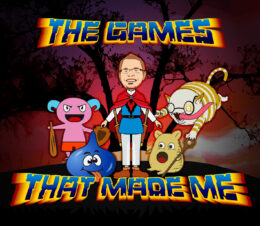“The gamer games according to their own tastes and interests, and as a result, discovers rare obsessions in a world of duds.”
-Brendino
Categorizing Our Gaming Experiences
Over the course of our existence, we will play hundreds, if not thousands, of games. Some of them will be rubbish. Certain ones will be good. Some of them will be memorable. Some might even encourage us to come back to them more than once. But only a select few will truly achieve greatness, even legendary status. All this is to say that we tend to categorize the games we play, whether we realize it or not. Based on my own personal experience playing video games, I divide up games into four categories.
Why Categorize Games in the First Place?
One of the reasons that this website exists is for me to document my personal gaming history and explore the ways in which it has contributed to the person I am today. In order to delve deeper into the power games can have in our lives, it becomes necessary to investigate why certain games “click” while others do not. Why do I still enjoy Skyrim on my fifth playthrough but usually not last more than an hour playing a first-person shooter? Understanding our unique connection to gaming can help us to learn more about ourselves.
Disclaimers
How a person categorizes the games they play is completely subjective. Our unique gaming profile is based on a lot of different factors, including our earliest gaming experiences, the games we have thus far played, our own personality, our likes and dislikes, etc. Since no two people are exactly the same it stands to reason that our gaming profiles will tend to be completely different.
We are disproportionately influenced by our early gaming experiences. For the most part, a lot of the games I find myself enjoying today can in one way or another be connected to positive gaming experiences from my childhood. Take my unique perspective on gaming. I have a soft spot for racing games, particularly kart racers, as I have many fond memories of playing Mario Kart & Diddy Kong Racing from my childhood. Despite enjoying killing my friends in Goldeneye 007 on the Nintendo 64, I never developed a passion for or interest in first person shooting games. As a child and teenager, I really enjoyed and played a lot of point-and-click adventure games such as Monkey Island and platformers akin to Super Mario World. Then there was my college obsession with the first two Rollercoaster Tycoon games. Would I feel as strongly about kart racers without happy memories of them from my childhood? What would my opinion on point-and-click adventure games be today without having enjoyed them in my adolescence? These are intriguing questions to ask ourselves.

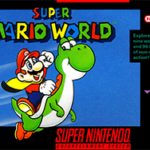

Games from our past may not live up to our modern standards. But we also must consider the extent to which the games we viewed through the rose-colored glasses of our childhoods may not stand up to our discerning tastes today. Have you ever tried to replay a game from your childhood that you absolutely adored and found that the magic is somehow lost? Sometimes I boot up my Nintendo 64 and can’t get past the graphics of a game I once enjoyed playing (Although to be fair, trying to play older consoles on newer televisions usually does not translate well). Other times, I find myself quickly losing patience with games like Super Mario World and find that I end up walking away from it frustrated instead of satisfied like when I was younger.
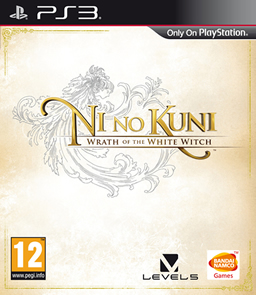
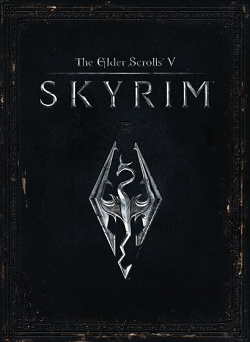
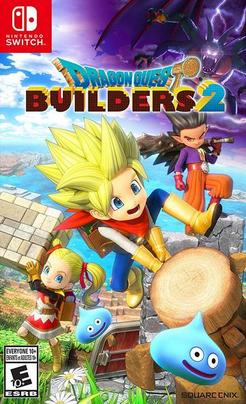
Our gamer profiles will change over time. Given my childhood gaming experiences, one would expect my gamer profile to consist of racing games, point-and-click adventures, and platformers. However, the vast majority of the games I spend my time playing today are of the RPG variety. Based on my childhood video game experiences, it makes no sense that I prefer to play RPGs today. I don’t have any memories of playing any role-playing games because I simply did not play them and wasn’t aware of their existence. It wasn’t until I was in my early thirties in 2013 that I started playing Dragon Quest VIII and fell head over heels in love with the genre. My first playthrough of Ni No Kuni on the PlayStation 3 in late 2013/early 2014 cemented my strong preference for the role-playing game.
It is possible for games to switch between categories. I can remember playing Tales of Symphonia in my early 20s and feeling overwhelmed pretty quickly. I was in over my head because I had literally never played an RPG game before and thus had no prior experience to draw from. The thought of learning all the in-game mechanics of an RPG title was not something I was willing or able to do at that point in my life. Had I rated Tales of Symphonia in 2005, it would have been a dud. Today, after having played through the title several times, I would consider it to be an obsession.
First Category: The Duds

First up are duds, the games we end up playing for a handful of hours (or less) and decide against continuing for one reason or another. Maybe the game just wasn’t what we thought it would be, the difficulty is too high, we can’t figure out the control scheme, technical glitches force us to abandon the game completely, or we are just bored out of our minds.
Second Category: The Potentials

The second category of games I call potentials. Think of potentials as games you have played for more than a few hours, but that lack something substantial enough to cause you to stop playing at a certain point, with no desire to see them all the way through to the end. Maybe the game’s core gameplay wasn’t satisfying, the story was too predictable or downright boring, or the graphics just didn’t jive with your sensibilities.
Third Category: The Delights

Next, we have the games I refer to as our delights. These games command our attention for a certain period of time, perhaps even all the way to their end, and we have a genuinely good time playing them. However, once we beat these games, we most likely will never play them again.
Fourth Category: The OBsessions

Only a small percentage of games we play will ever truly fit into the last category, the obsessions. These are games we not only stick with all the way through but continue to enjoy long after the first time we played through them. We indulge ourselves in multiple playthroughs and keep finding new reasons to come back to these titles. Moreover, we never seem to tire of these games and continuously find that these titles give us a sense of peace and genuine enjoyment.
